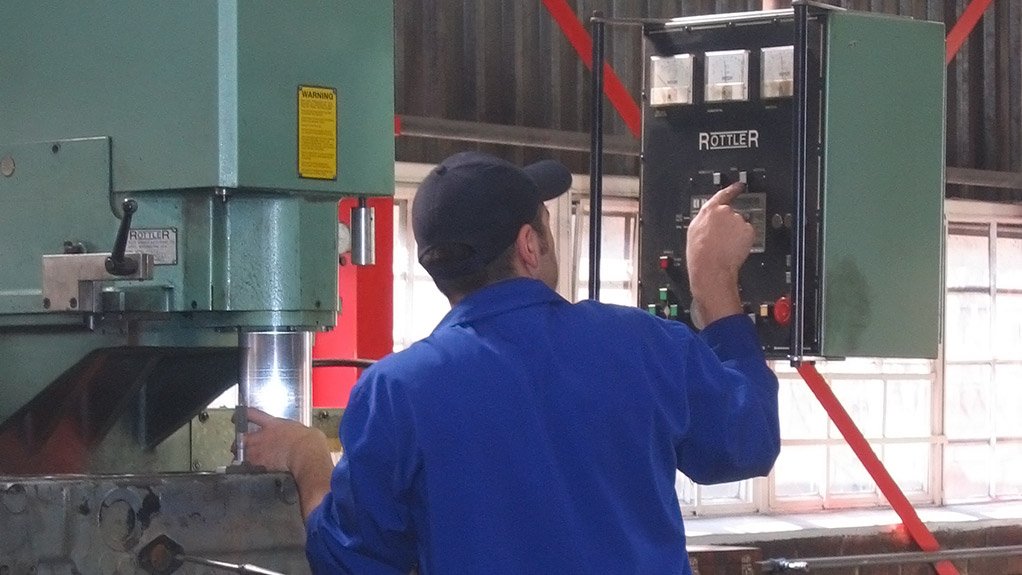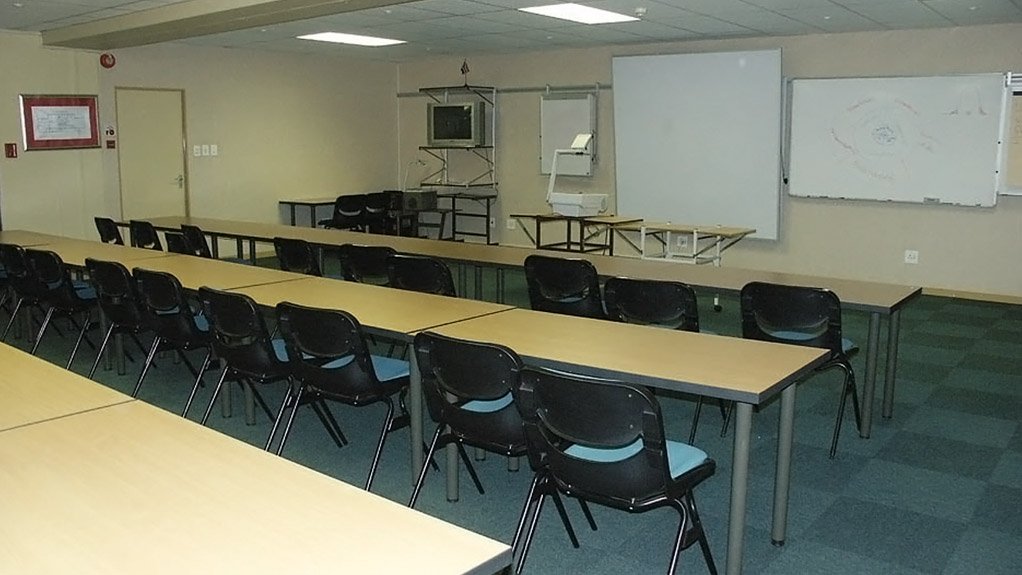Drive to review maintenance costs before buying



EQUIPMENT MAINTENANCE PRIORITY Poor maintenance practices are more prevalent in companies which are highly production orientated
Photo by Duane Daws
SENIOR MANAGEMENT BUY-IN Alusani Skills & Training Network encourages senior managers to attend courses on preventive maintenance to understand its importance
Institutions such as construction training provider Alusani Skills & Training Network are trying to encourage engineering firms carrying out large construction projects to stipulate that the cost of maintenance programmes be included in tenders from construction equipment suppliers covering the life span of construction equipment.
“These maintenance programmes must include, for example, regular machine greasing and oil changes,” Alusani Skills & Training Network training consultant Allan Tarita tells Engineering News.
He says buyers of equipment participating in large projects often overlook the true life-cycle costing of a piece of equipment. Taking equipment’s life-cycle costs into account is important, as cheaper construction equipment may be more expensive over the course of its life cycle than more expensive equipment owing to higher maintenance costs, explains Tarita.
Thorough and regular maintenance will not only ensure that construction equipment lasts throughout its expected life span but will also assist in significantly exceeding life-span expectations, providing companies with genuine value for money, he emphasises.
“A tremendous amount of pressure is placed on construction equipment, as it is normally bought by a construction company for a particular project, during which it is usually used beyond its original design capacity,” he highlights, adding that this increased work pressure will undoubtedly reduce the life span of the equipment if it is not properly maintained.
Tarita explains that if the equipment is of significant value, it should be assigned to another project after the conclusion of the project for which it was originally bought and used. However, construction equipment is often and, literally, left behind on site once it has served its purpose.
This practice of leaving equipment behind seems to be quite a common practice, especially in the South African road construction industry, he notes.
Tarita has also seen this practice in the oil and gas industries in Russia, where equipment is often left behind or buried on or near site on completion of a project. Companies do not have the financial capability or the technical know-how to maintain the equipment after project completion, resulting in the equipment deteriorating because of rust and dirt accumulation, he notes.
“Companies without specialised main- tenance apprenticeship programmes are forced to source maintenance workers in-house and this is more difficult in the construction industry, as companies are under tremendous pressure to ensure that a project is completed within budget and on schedule,” says Tarita, adding that there is generally insufficient capacity to train people on site in such pressurised conditions.
Productivity Versus Maintenance Conundrum
“The challenge of poor maintenance practices is more prevalent in companies which are highly production orientated. These companies are hesitant to stop using their construction equipment for purposes of routine maintenance because they view this as unnecessary operational downtime,” highlights Tarita.
However, he says senior managers of construction projects – who essentially have the final say over operational practices – still do not appreciate the importance of undertaking regular maintenance on construction equipment.
“Sadly, many companies in the construction industry still have the anachronistic view that maintenance is an expense to operations as opposed to being a strategic operational asset,” Tarita points out.
He notes that many people who attend Alusani’s preventive maintenance and planning and scheduling courses say their senior managers should attend these courses. “They are the decision-makers who often refuse to undertake the maintenance when it is required,” adds Tarita.
Planned maintenance that is not executed results in greater wear and tear to equipment. Subsequent maintenance operations will be more intensive and, therefore, more costly, he notes.
From an operational standpoint, equipment operators play a significant role in maintenance, as they should be carrying out daily pre-inspections of the equipment to ensure it is functioning and that all health and safety regulations are complied with.
Tarita says, in many cases, equipment operators unfortunately do not carry out these basic checks and no one ensures that these checks are undertaken, as they are not regarded as important by senior management.
Another challenge is the disregard of the outcome of these checks by superiors should equipment be deemed faulty. “This discourages maintenance workers from carrying out regular checks in future, as they serve no purpose,” he adds.
However, senior managers must note that breakdown costs are, on average, seven times higher than the costs of regu- lar scheduled maintenance operations. “These additional costs are incurred because of the need to pay overtime and expedite the transportation of equipment parts urgently,” says Tarita.
He notes that the number of people attending Alusani Skills & Training Network construction and maintenance courses has remained consistent throughout the recession, from which South Africa is steadily recovering. The large construction companies have remained committed to attending these courses throughout this period, as they realise the importance of having qualified maintenance teams, Tarita highlights.
“Alusani Skills & Training Network has registered steady growth in the number of people interested in learning about construction maintenance analytics, such as root cause failure analysis and leadership skills for maintenance engineers and maintenance managers,” he concludes.
Comments
Announcements
What's On
Subscribe to improve your user experience...
Option 1 (equivalent of R125 a month):
Receive a weekly copy of Creamer Media's Engineering News & Mining Weekly magazine
(print copy for those in South Africa and e-magazine for those outside of South Africa)
Receive daily email newsletters
Access to full search results
Access archive of magazine back copies
Access to Projects in Progress
Access to ONE Research Report of your choice in PDF format
Option 2 (equivalent of R375 a month):
All benefits from Option 1
PLUS
Access to Creamer Media's Research Channel Africa for ALL Research Reports, in PDF format, on various industrial and mining sectors
including Electricity; Water; Energy Transition; Hydrogen; Roads, Rail and Ports; Coal; Gold; Platinum; Battery Metals; etc.
Already a subscriber?
Forgotten your password?
Receive weekly copy of Creamer Media's Engineering News & Mining Weekly magazine (print copy for those in South Africa and e-magazine for those outside of South Africa)
➕
Recieve daily email newsletters
➕
Access to full search results
➕
Access archive of magazine back copies
➕
Access to Projects in Progress
➕
Access to ONE Research Report of your choice in PDF format
RESEARCH CHANNEL AFRICA
R4500 (equivalent of R375 a month)
SUBSCRIBEAll benefits from Option 1
➕
Access to Creamer Media's Research Channel Africa for ALL Research Reports on various industrial and mining sectors, in PDF format, including on:
Electricity
➕
Water
➕
Energy Transition
➕
Hydrogen
➕
Roads, Rail and Ports
➕
Coal
➕
Gold
➕
Platinum
➕
Battery Metals
➕
etc.
Receive all benefits from Option 1 or Option 2 delivered to numerous people at your company
➕
Multiple User names and Passwords for simultaneous log-ins
➕
Intranet integration access to all in your organisation




















